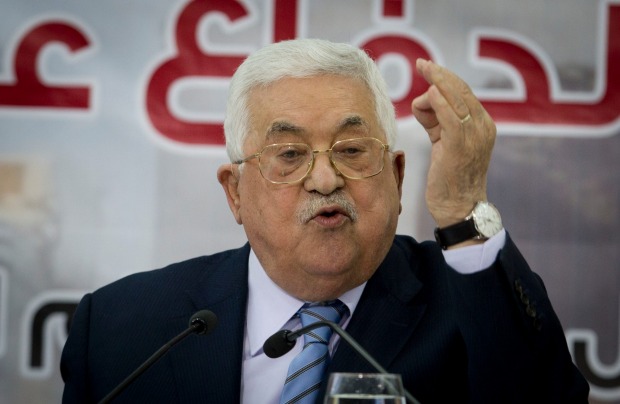Tel Aviv/Jerusalem : Israel and Hamas are again at the precipice of war, and one of the causes is an unlikely player: Palestinian Authority President Mahmoud Abbas, who rules the West Bank.
For two days, Hamas has been launching rocket barrages on Israel from the Gaza Strip and Israeli jets have been hitting military targets inside the tiny territory. Long before that, though, Abbas was refusing to pay Gaza’s power bills, opposing diesel shipments from Qatar and slashing the salaries of 70,000 Gaza civil servants he is responsible for paying.
The result: A population of 1.8 million people trapped inside a Mediterranean enclave that is becoming more and more volatile. Hamas has sought to channel Gazans’ growing dissatisfaction with their plight in the only direction allowed-against Israel, in a campaign of tightly managed border protests that have grown increasingly violent since they kicked off in March.
“This was preliminary-a full-scale conflict is inevitable,” said Grisha Yakubovich, a former Israel military commander in Gaza who now does business with Palestinian companies there. “Hamas will never ever ever give up. They have a dream to replace Abbas and the Palestinian Authority.”
The World Bank says Gaza is in “free fall” – no surprise in a territory where unemployment has exceeded 40 per cent for four years and 95 per cent of the water is undrinkable. The economy shrank by 6 per cent in the first quarter of 2018.
The pain stems from Abbas’ sanctions, an Israeli and Egyptian blockade, Hamas’s spending for weapons over welfare and the international community’s refusal to provide aid or trade because of Hamas’s embrace of violence. Recent cuts in US assistance have jeopardised schools, hospitals and food giveaways, according to a recent report.
For unemployed Gaza teacher Islam Ibrahim and his family, Abbas’s sanctions have meant as little as four hours of electricity a day. The lamb kebabs are turning rancid in the fridge, the children are doing homework by candlelight and Ibrahim often misses broadcasts of his beloved Real Madrid soccer club.
Read the article in the Australian Financial Review (Bloomberg).

